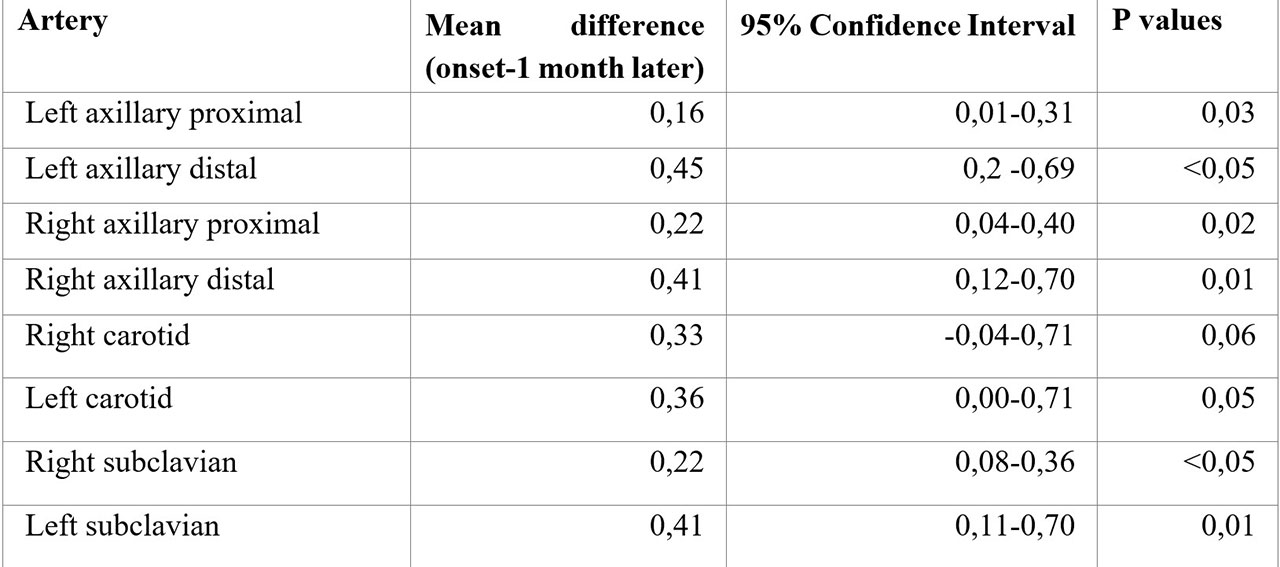Session Information
Date: Tuesday, November 12, 2019
Title: Vasculitis – Non-ANCA-Associated & Related Disorders Poster III: Giant Cell Arteritis
Session Type: Poster Session (Tuesday)
Session Time: 9:00AM-11:00AM
Background/Purpose: On ultrasound (US) examinations, large vessel vasculitis (LVV) has been reported to be present in up to 55% of Giant cell arteritis (GCA) patients. No consensus exists on how to evaluate treatment response in LVV. US yields a high sensitivity and specificity on GCA diagnostics . The aim of this study was to examine if the US of the large supraaortic arteries could be used to monitor treatment response in patients with LVV-GCA.
Methods: We included retrospectively patients who were diagnosed with new-onset LVV-GCA (positive US of the supraaortic vessel(s) and typical clinical manifestations) after they had been referred to the Department of Rheumatology, Martina Hansens Hospital in Bærum, Norway between September 2017 and April 2019. The intima-media complex (IMC) thickness of the supraaortic arteries (carotid, subclavian, axillary proximal and distal) was measured at diagnosis (and within 3 days after the initiation of prednisolone) and after one month. C-reactive protein (CRP) and prednisolone dose were also registered. Appropriate statistical tests were applied and p values < 0.05 were considered as significant. Results: Twenty patients (14 females, 6 males) were included in this study, with a mean age of 67 years. The mean starting dose of prednisolone was 46 mg and one month later, prednisolone dose was reduced by 16 mg (95% CI 9-22, p< 0.005). The mean CRP at disease onset was 80 mg/dl and one month later it was reduced by 77 mg/dl (95% CI 40-115, p=0.001). After one month, and except for the right carotid artery, a significant reduction of IMC thickness in all supraaortic vessels was observed (table 1). Conclusion: The US of the supraaortic arteries may be a useful tool to monitor treatment response in LVV-GCA. Thus, the US of the large vessels has the potential to be used for the assessment of disease activity in LVV-GCA patients. These promising results have to be confirmed in larger cohorts of patients.
To cite this abstract in AMA style:
Bull Haaversen A, Holt V, Nabizadeh S, Slagsvold A, Diamantopoulos A. Ultrasound to Monitor Treatment Response in Large Vessel Giant Cell Arteritis [abstract]. Arthritis Rheumatol. 2019; 71 (suppl 10). https://acrabstracts.org/abstract/ultrasound-to-monitor-treatment-response-in-large-vessel-giant-cell-arteritis/. Accessed .« Back to 2019 ACR/ARP Annual Meeting
ACR Meeting Abstracts - https://acrabstracts.org/abstract/ultrasound-to-monitor-treatment-response-in-large-vessel-giant-cell-arteritis/

